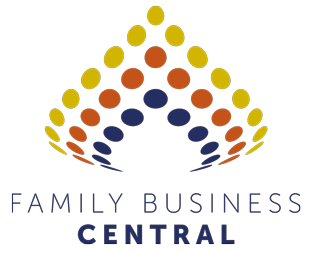
The Human Resource Baseline: How to strengthen your family business
Steve BoothSenior Consultant Family Business Central
Following on from last month’s blog, where we discussed the evolution of the family business, we bring you some further insights on the topic, by our HR guru Steve Booth.
Taking any company from start-up to a successful business is an enormous challenge; it can be even more challenging in a family business as there are many unique considerations to address if the business is to evolve and grow.
Many family businesses start up on a tight budget and are fundamentally focused on costs. For this reason, many owners find themselves needing to make the most of whatever resources are at hand and take on a large cross-section of roles themselves or utilise a few trusted family members.
During this start-up and consolidation stage, hiring a specialist for each specific task is costly and therefore not practical. That’s why so many small business owners juggle a lot of different activities themselves. They often undertake accounting, customer support, sales and manage inventories, all the while trying to make financial ends meet. The challenge is that they inadvertently overload their team through lack of role clarity and decision making. While this may work in the short term, it is not a viable long-term strategy.
Things don’t necessarily get easier when the business starts employing more people. New hires, whether they are sourced from family or the general market, may bring passion and commitment, but, if they don’t have the required skills for the tasks at hand, the business can descend into chaos and conflict very quickly. If the business is to evolve and grow it is critical that it leaves old habits behind. Moreover, it is crucial that objective and business-focused guidelines and processes are instigated as soon as possible.
Growth through Evolution
As a family business grows and expands it’s going to face major and often unique challenges. Family businesses need to get their head around the fact that to evolve and grow they need to ‘change’ –
- Change in attitude.
- Change in structure.
- Change in operation; and most importantly
- Change in strategy.
That is, of course, easier said than done.
Managing change and evolution is difficult for any business. However, to achieve successful and enduring change within a family business, balancing business performance with family inclusion at every step can be especially challenging. Should the family not be engaged and invested to drive the necessary changes then success will be extremely difficult.
There are many excellent examples where family businesses have taken on these challenges and evolved into exceptional successful businesses that, in most cases, operate more efficiently and effectively than many large corporates. In fact, it is this family commitment, strategy, and drive to do well and grow, that has enabled these family businesses to be so successful.
While it is critical that successful family businesses focus on aligning the family with what is going on in the business, it is equally critical that the business, as it evolves, is managed, and run professionally and efficiently.
Basically, it is essential to have a thorough understanding of the status of the business; establishing a baseline on which to determine what changes are needed and to then inform the development of appropriate strategy and planning. An objective understanding of “how things are running now” will determine what, where and when changes need to be made to achieve the growth desired or put simply “how things should be running”.
In a nutshell, understanding the basic strategic drivers of your business.
What is this Human Resource Baseline?
The Human Resource Baseline of a business is essentially a set of fundamental Human Resource strategies, policies and procedures that provide the consistent signposts and guidelines to owners, management, and staff to ensure they achieve both long term and day to day success.
Without a Strategic Human Resource Baseline, it is almost impossible for any company, family or corporate, to operate successfully.
Without conducting an objective analysis and assessment of it’s Human Resource Baseline it is much more difficult for any business to achieve its potential. How would you answer the following questions in terms of your business?
- STRATEGY: What is the mission or strategy of the business, where will you be in 5 to 10 years?
- DESIGN (authority, delegation, empowerment, roles, and structure): Is your business structured for maximum performance – is everyone on the ‘same page?’
- ORGANISATION CAPABILITY: How do you attract and keep good people?
- ANALYTICS: Do you have a compelling vision in place that keeps everyone focused and motivated?
- EFFICIENCY: How would you rate your systems and processes …could they be improved?
- COMPLIANCE: Do you know if you are compliant in terms of ethical behaviour, IR, Fair Work, OHS etc.? If not – do you know what you must do?
- WORK STYLE/CULTURE: How would you describe your culture and is everyone on board – if not, why not?
Below are some examples of how the Human Resources Baseline may affect your Family Business
Reporting and Authority
In any successful business, clear reporting lines must be in place with clear expectations, responsibility and most importantly, accountability.
In a family business structure, there is often a short chain of command that ensures issues are raised early and decisions can be made quickly.Of course, to be effective, family members in those roles must have the requisite skills and knowledge.
It is essential that family business structures are formulated for efficient operation, support an effective professional decision-making hierarchy based on capability and merit, and are not solely predicated on where an employee sits in the family hierarchy.
Performance and Accountability
In any successful business, most roles are clearly defined and should be supported by agreed Position Descriptions. All employees clearly know what they are accountable for, how to achieve success and how this success will be measured. More importantly they know which actions they are responsible for and which ones belong to other members of their team. They also have a straightforward title and understand the responsibilities that go along with it.
During start-up and consolidation stages, a family business is more likely to have much less clarity and, dependent on size, employees may have multiple roles. In addition, there is often an expectation to “jump in” and lend a helping hand wherever needed, especially in smaller businesses. At this stage it is likely an employee of a family business will have much less clarity of their role and what performance is expected.
Once again, this approach may be manageable when the business is small or less complex but is not viable as the business evolves and grows. It is important that a family business has clearly understood and defined lines of accountability as well as clear role descriptions and performance measures.
Gone are the days when family members got a job just because they are family.For successful business growth, family members must be appointed on capability and merit and held accountable for performance in the same manner as all employees.
Career Progression
Within any successful business, career development is professional, understood, and consistent. Advancement and progression are transparent and planned within the company’s structure, available to all and based on potential, capability, and performance (merit).
In a family business, during the start-up and consolidation phase, advancement may often not be as professional as it may follow a much more flexible path and family affiliations may also play a role.
Family contribution, engagement and passion has been, and always will be, the backbone of any successful family business. However, it is important that family resources are channeled to where they are best suited and effective and that there are set and consistent processes to ensure this.
The family charter should outline the professional development plan or program for anyone who aspires to, or has been identified as, having potential for a leadership or senior position. Where possible this should include independent assessment to ensure the family member meets the standard required for such roles.This should include mentoring, coaching, working outside the business, working in different parts of the business and formal education.
It is essential that family businesses are professional and transparent in terms of career progression. Processes must be fair and based on solid business focused decisions. The best person for the role regardless of family affiliations will facilitate business success and a cohesive team culture.
The above issues are just some of the fundamentals of a Human Resource Baseline which are the essential building block of business success. Regardless of where you see your business positioned it is a good idea to step back from time to time and have a look at your business in terms of its Human Resource Baseline.
Finally let me leave you with these thoughts:
If a true legacy is to be built, Family Businesses must maintain a focus on aligning the family with the professional operation of the business. They must also be aware of the importance of seeking out and following professional and solid business advice and processes, with a key focus on the importance of merit-based decision making which is critical to long term business success.
Fundamental to effective family governance is professionally managing conflict and having clear communication and expectations within the family. Having an effective Human Resource Baseline provides the tools and benchmarks around how the business is set up, operates, performs and the way that family members join the business and are held accountable.
If you would like to learn more about the Human Resource Baseline in your company or like to discuss any of the issues raised in this article, please contact us at philip@familybusinesscentral.com


